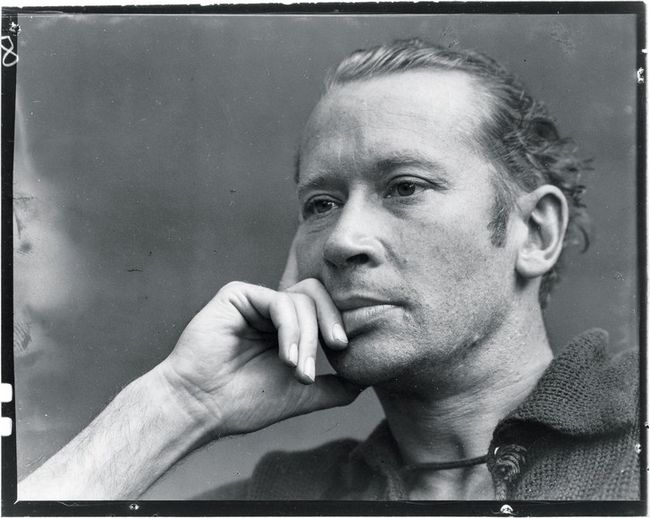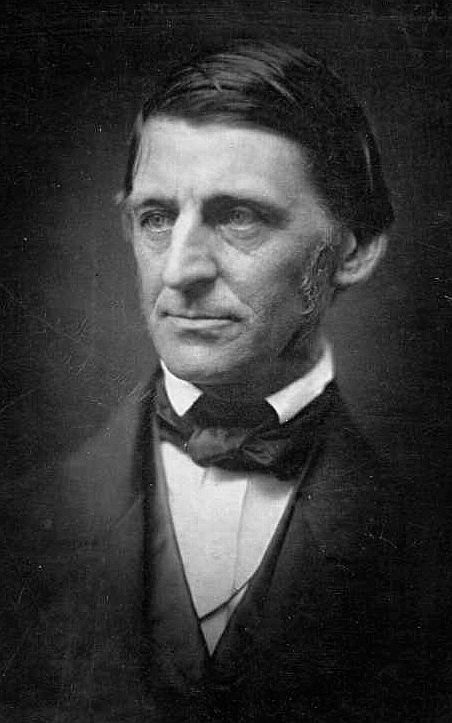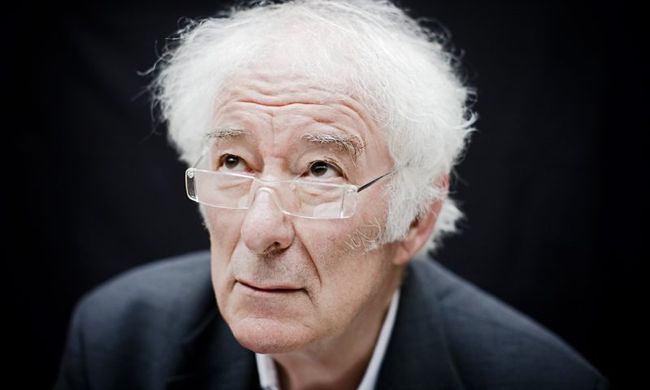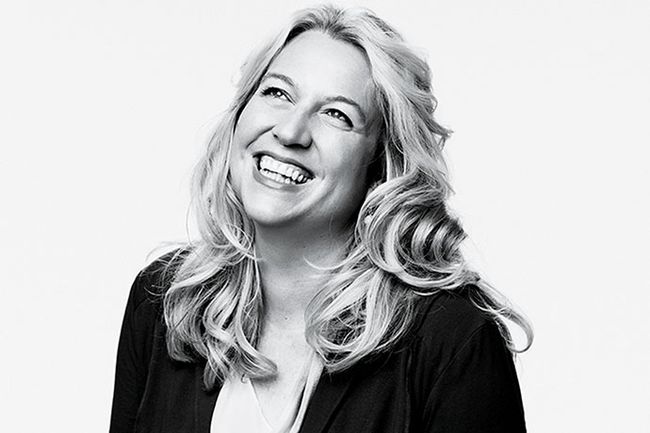你要告訴這世界怎樣來對待你,如果是由這個世界來告訴你會如何被對待,那你就麻煩了。— 詹姆斯·鮑德溫
“You’ve got to tell the world how to treat you. If the world tells you how you are going to be treated, you are in trouble.”-James Baldwin
在美國黑人小說家及社會活動家詹姆斯·鮑德溫說出這番話的二十年前,另一位特立獨行的美國詩人康明斯(E.E.Cummings)也早已擺出了自我保衛戰的陣式,寫出:
"To be nobody-but-yourself — in a world which is doing its best, night and day, to make you everybody else — means to fight the hardest battle which any human being can fight; and never stop fighting." -E.E. Cummings
「做你自己,而不是別人——在這個日日夜夜、無所不用其極地要把你變成另外一個人的世界上——意味着要打一場硬仗,這場仗每個人都可以打,並且要永不停歇地打。」
關於如何地打這樣一場仗,康明斯提出了一些雖不具體、卻有啓發性的見解,那就是:
感受,並表達你的感受。
“A lot of people think or believe or know they feel — but that’s thinking or believing or knowing; not feeling. And poetry is feeling — not knowing or believing or thinking.
Almost anybody can learn to think or believe or know, but not a single human being can be taught to feel. Why? Because whenever you think or you believe or you know, you’re a lot of other people: but the moment you feel, you’re nobody-but-yourself.”
- E.E. Cummings
他說,很多人認為、相信、知道他們能感受,但那只是認為、相信、知道,不是感受。幾乎每一個人都可以學習思考,學習相信,學習知道,但沒有一個人可以被教曉如何感受。為什麼?因為每當你認為、相信、知道的時候,你跟其他人是一樣的;但當你感受的時候,你不是別人,你是你自己。
康明思在他的一生中,就從沒停止過和世界打這樣的一場仗,打破詩歌的傳統,對詩歌語言進行獨特的實驗和大膽的創新, 誓死捍衛來自他自己內心而不是別人的感受和聲音。
但我們還是忍不住常常對自己的內心表示懷疑,寧可聽外面的世界和別人告訴我們,我們是誰,什麼才是真相。我們身上的巴甫洛夫(Pavlovian)式反應,總讓我們覺得一些大部分人都接受的陳規大致上保障了我們會有所得,而異樣的聲音又往往會在盲從的大多數中受到懲罰,於是,和感受同樣重要的,就是:
傾聽,並相信內心的聲音。
對於傾聽我們內心的聲音,沒有人比愛默生說得更優美和更值得信服的了。
To believe your own thought, to believe that what is true for you in your private heart is true for all men, — that is genius. Speak your latent conviction, and it shall be the universal sense; for the inmost in due time becomes the outmost.
--Ralph Waldo Emerson
他說:「相信你自己的想法,相信在你內心看來最真實的東西對所有人也是真實的——那是一種天賦的聲音。為你潛在的信念發聲,那也是世界共同的心聲,因為在有限的時間裡,最內也就是最外。」
對此,愛爾蘭作家和詩人、1995年諾貝爾文學奬得主謝默思・希尼也站到了同樣的隊列:
The true and durable path into and through experience involves being true to the actual givens of your lives. True to your own solitude, true to your own secret knowledge. Because oddly enough, it is that intimate, deeply personal knowledge that links us most vitally and keeps us most reliably connected to one another. And you will be sure to keep going in life on a far steadier keel and with far more radiant individuality if you navigate by that principle. --Seamus Heaney
他說:「忠於生活所賜,忠於你的孤獨,忠於你自己的隐秘知識⋯⋯說也奇怪,那個非常深入和私密的個人知識會以最生動及最可靠的方式將我們與別人連接在一起。跟從這個原則,你的人生之路將會走得到更穏當,更有神彩。」
Once we believe in ourselves, we can risk curiosity, wonder, spontaneous delight, or any experience that reveals the human spirit. --Seamus Heaney
他還說,當我們相信了自己,我們便可以大膽地運用我們的好奇、求知欲、自發的喜悅,或者任何展露出人之精神的經驗。
謝默思・希尼逝世前一年,另一位美國女作家雪兒・史翠德(Cheryl Strayed)在她的暢銷小說《那時候,我只剩下勇敢》(Wild)中響應了這一種說法:
“When you’re speaking in the truest, most intimate voice about your life, you are speaking with the universal voice.” --Cheryl Strayed
她說:「當你用最真實的、最私密的聲音來表達你的生活,你也就是在用一種世界共通的聲音。」
參與在這場讓自己成為自己的硬仗中,除了帶着先哲們精神上的鼓舞,也有來自俄羅斯的電影人和作家安德烈・塔爾科夫斯基(Andrei Tarkovsky)的忠告:
學會享受和自己做朋友。
I don’t know… I think I’d like to say only that they should learn to be alone and try to spend as much time as possible by themselves. I think one of the faults of young people today is that they try to come together around events that are noisy, almost aggressive at times. This desire to be together in order to not feel alone is an unfortunate symptom, in my opinion. Every person needs to learn from childhood how to be spend time with oneself. That doesn’t mean he should be lonely, but that he shouldn’t grow bored with himself because people who grow bored in their own company seem to me in danger, from a self-esteem point of view.--Andrei Tarkovsky
在一個珍貴的視頻(https://youtu.be/_Vvdtaaprzw)中,安德烈・塔爾科夫斯基當被問到對年輕人有什麼忠告時,他說:「我不知道⋯⋯我想我會說他們應該學會獨處,盡量多花點時間在自己身上,和自己相處。我想今天的年輕人所犯的一個錯誤就是,他們常常喜歡混在各種活動嘈雜的人堆裡,有時顯得太過份。這種想要和別人在一起以免落於孤單的渴望,是一種很不幸的徵兆,我想。每一個人從孩提時就要學會和自己相處,那不代表他就會覺得孤單,他不應該被自己悶着,那些會被自己悶着的人對我來說是有危險的,從自尊心這方面來說。」
安德烈・塔爾科夫斯基的觀察和忠告看來並不受時間的影響,在今天聽來仍然準確並合時宜。另一位美國女小說家佛羅倫斯・金(Florence King)則在此基礎上給出了更具體可行的建議,不只適用於剛從高校畢業的年輕人,也適合任何年齡、仍抱持着和世界打一場硬仗的雄心以讓自己成為自己的人。
佛羅倫斯・金的建議是:
Go somewhere different, but stay away from big cities. If you’re from a place you call “godforsaken,” go to a small city in another part of the country…
第一,到一個不同的地方去,但要遠離大城市。
她說,如果你是來自一個你很討厭的地方,那麼在國內找(另)一個小城市試試。
Get a dead-end job — they’re plentiful now because nobody wants them. Tell your employer the truth: that you’ll be around only a year or so, but promise to work hard. Keep your promise. Little triumphs are the pennies of self-esteem. If you do well in such a job and make yourself indispensable to somebody, you will realize Robert E. Lee’s farewell words to his men after the surrender at Appomattox: “You will take with you the satisfaction that proceeds from a knowledge of duty faithfully performed.”
第二,找一份毫無前途的工作。
她說,這樣的工作現在很多,沒有人想要(所以很容易找)。對你的老板說實話:你只會呆一年左右,但保證會努力幹。小小的成就感有助於增強自尊心。如果你能把這樣一份工作幹得很好,並讓自己無法被取代,你就會明白此話的涵義:你將帶着在忠誠地履行責任中獲得的滿足感一路前行。
Live alone, even at a financial sacrifice. If you have a roommate, the whole college uproar will just start all over again. Get a one-room apartment, or simply a room in the home of a nice widow. Get to know her. She’s dying to tell somebody the story of her life, so listen.
第三,一個人住。
即便有可能因此要在財政方面作出一點犧牲。如果你有同住的室友,高校裡的喧囂又會故態復萌。找一個單人間的公寓,或者是從一個好心的寡婦那裡租住一個房間。試着和她交往,她將會很迫切地告訴你她生活中的故事,靜靜地聽她講就好。
Have a radio for emergency news, but no TV. Read, read, read. When you don’t have to worry about passing exams on them, subjects you studied in school suddenly become interesting. Read my “desert island book,” the one I’d want with me if I were shipwrecked: The Prodigal Women by Nancy Hale, a novel published in 1942. Girls will love it, and boys will learn more about women from it than anything I know of.
第四,不要電視機。
可以要個收音機收聽緊急新聞,但是不要電視機。閱讀,閱讀,閱讀。當你不需要擔心考試過關的問題,你在學校學過的科目就會突然變得有趣。閱讀我的「沙漠荒島書籍」,如果遇上船難我會希望有1942年出版的南茜・海爾(Nancy Hale) 的《敗家的女人》( The Prodigal Woman)在身邊。女孩們會很喜歡看,也是讓男孩可以了解女人的不二之選。
Stay chaste during your limbo year. Sex ruins reflection and self-knowledge; you’re so busy analyzing the other person that you never get around to analyzing yourself.
第五,保持貞潔。
在這不確定的一年裡,保時貞潔。性愛會破壞自我的反省和認知,因為過程中你會忙於分析別人,從而沒有時間分析自己。
佛羅倫斯・金的這五項建議,聽起來和這世界上普遍通行的金規玉律背道而馳,但她認為是非常有效和極具建設性的,也是有助「找到自己」的五貼靈丹妙藥,特別是當這個殘酷的世界在你身後不停地催促「快點!快點!快點!」的時候,你必須得把所謂的「成功」和「前途」暫時放下,慢慢搭建起通往自己內心的橋樑。到那個時候,她說:「那個好心的寡婦此後會永遠記得你是那個『曾經住在這裡的好女/男孩』,而那個老板會搖着頭說:『天哪,我希望可以找到更多這樣的年輕人呢!』」
最後,讓我們以尼采的一段話,作為我們和世界開打的這場硬仗中鳴響的戰鼓。
“No one can build you the bridge on which you, and only you, must cross the river of life. There may be countless trails and bridges and demigods who would gladly carry you across; but only at the price of pawning and forgoing yourself. There is one path in the world that none can walk but you. Where does it lead? Don’t ask, walk!
--Friedrich Nietzsche
在跨過自己生命之河的過程中,沒有人可以為你造橋,除了你自己。也許中間會有無數的小道、橋樑和妖巫的出現,他們會很樂意帶你通過,但你因此得付出出賣和放棄自己的代價。在這世上,你的路只有你自己能走。至於這條路通向哪裡,不要問,走了再說!—— 尼采
(完)
*本文內容參考自Maria Popova的Brain Pickings.







